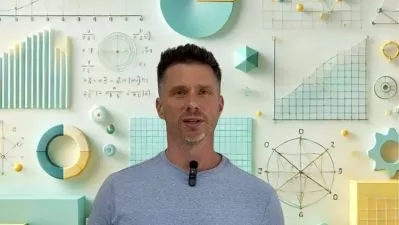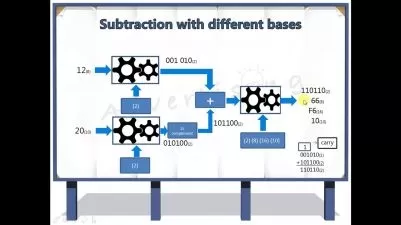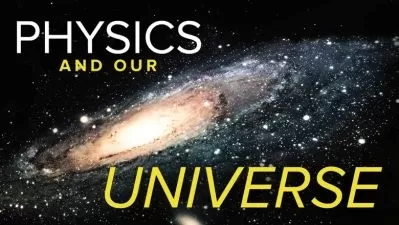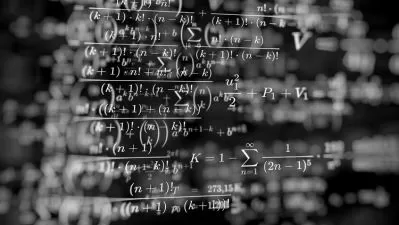Mathematical Intuition behind Electric Motors
Emanuele Pesaresi
3:34:18
Description
DC motors and 3-phase motors
What You'll Learn?
- The mathematics of the DC motor
- The mathematics of the 3-phase asynchronous motor
- How to derive the equations of the DC motor and the 3-phase asynchronous motor
- The electromagnetic field generated by the DC motor and 3-phase asynchronous motor
- the angular velocity and torque of the DC motor and 3-phase asynchronous motor
Who is this for?
More details
DescriptionIn this course the mathematics of electric motors are derived. In particular, the constitutive equations of the DC motor and the 3-phase asynchronous motor are constructed starting from the principles of electromagnetism.
In the DC motor, the analysis of the stator and the rotor will lead us to equations containing the torque generated by the motor, the angular velocity, the current in the armature circuit, the current in the excitation circuit, the electromotive force generated by induction, the excitation flux, and more. We will explain the behavior of the motor through the equations; their derivation will foster comprehensive understanding of the dynamics of the motor.
The theory of the 3-phase asynchronous motor will require more lectures to be developed, due to the greater physical and mathematical difficulty of this type of motors. The stator and the rotor are analyzed using complex vectors. First, the electromagnetic field in the air gap between the stator and the rotor is derived, which will then allow to find the flux. Finding the flux is necessary because this physical quantity appears in the constitutive equations of the motor. Besides, the mechanical and electric power generated by the motor will be discussed and mathematically derived in the course, as well as the torque, angular frequency of the rotor, and the parameter called “slipâ€. The characteristic curve of the torque will also be plotted against the angular velocity of the motor.
Prerequisites
Students should be familiar with complex vectors and calculus. Besides, the knowledge of the following concepts from electromagnetism are recommended:
· Kirchhoff's laws
· Inductance, resistance, impedance
· Faraday-Lenz law of electromagnetism (which stems from Maxwell laws)
Who this course is for:
- students who want to understand DC motors and 3-phase asynchronous motors mathematically
In this course the mathematics of electric motors are derived. In particular, the constitutive equations of the DC motor and the 3-phase asynchronous motor are constructed starting from the principles of electromagnetism.
In the DC motor, the analysis of the stator and the rotor will lead us to equations containing the torque generated by the motor, the angular velocity, the current in the armature circuit, the current in the excitation circuit, the electromotive force generated by induction, the excitation flux, and more. We will explain the behavior of the motor through the equations; their derivation will foster comprehensive understanding of the dynamics of the motor.
The theory of the 3-phase asynchronous motor will require more lectures to be developed, due to the greater physical and mathematical difficulty of this type of motors. The stator and the rotor are analyzed using complex vectors. First, the electromagnetic field in the air gap between the stator and the rotor is derived, which will then allow to find the flux. Finding the flux is necessary because this physical quantity appears in the constitutive equations of the motor. Besides, the mechanical and electric power generated by the motor will be discussed and mathematically derived in the course, as well as the torque, angular frequency of the rotor, and the parameter called “slipâ€. The characteristic curve of the torque will also be plotted against the angular velocity of the motor.
Prerequisites
Students should be familiar with complex vectors and calculus. Besides, the knowledge of the following concepts from electromagnetism are recommended:
· Kirchhoff's laws
· Inductance, resistance, impedance
· Faraday-Lenz law of electromagnetism (which stems from Maxwell laws)
Who this course is for:
- students who want to understand DC motors and 3-phase asynchronous motors mathematically
User Reviews
Rating
Emanuele Pesaresi
Instructor's Courses
Udemy
View courses Udemy- language english
- Training sessions 26
- duration 3:34:18
- English subtitles has
- Release Date 2023/03/02
















